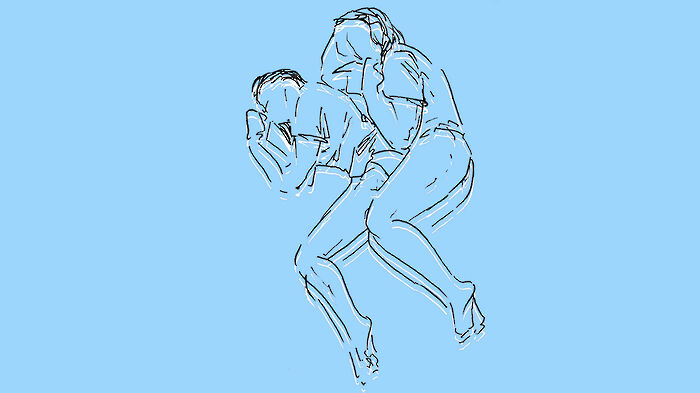Cambridge’s alternative curriculum: restricting my independence gives me independence from my restrictions
In her fourth column on student life outside of academia, Cait Findlay explores how establishing boundaries stops her from over-stretching herself and doing what she loves

In my previous columns, I’ve written about connections to other people and the ways in which those relationships and bonds have informed my experience at Cambridge. In many ways, I’ve learned more from those early mornings on the river and late nights hanging out in friends’ rooms than I have at more acceptable hours in lecture halls and supervision rooms. But learning doesn’t have to come from other people – any library-bound humanities student can tell you that, perhaps with a tinge of bitterness in their voices as they contemplate their future debt. For a lot of people, leaving for university was the first time that they lived away from home in a setting where you have to be entirely responsible for yourself and your time. Having that extra layer of independence, where no one asks where you’re going and when you’ll be back, is extremely liberating. Living away from home taught me that independence means finding out where your boundaries lie in order to make the most of new freedoms.
"My understanding of self-care has distilled into something more nuanced and complex"
In the first week of my first term at Cambridge, I worked in the library until 11pm every night. I thought that to start as I meant to go on, as it were, I needed to ignore the fun things that everyone else was getting up to in freshers’ week (although I can safely and smugly say that freshers’ wristbands are a scam) and install myself in the library to get to work. By the time that Week 2 rolled around, I was exhausted. That first week really emphasised for me the importance of creating boundaries to look after my mental health – a concept I had never really come across before I got to Cambridge, but which came at me like a runaway train in the form of ‘welfairies’ and a slew of Varsity articles about self-care. I realised that working past 7pm (or 5pm, if I’m being totally honest) just doesn’t work for me. I can’t concentrate and I’ve realised that the evenings are when I need to recharge rather than revise. Deciding that I would work a regular 9-5 meant that I carved out space specifically for myself away from Chaucer and Shakespeare and all the other dead white men demanding my attention.
Three years later though, with finals finished and a month until graduation, that initial understanding of self-care has distilled into something more nuanced and complex. Compared to my initial impressions, based on articles about bath bombs and chocolate, the self-care conversation has become more holistic, in line with my increasingly developed understanding. Instead, what I’ve learned about looking after myself has been a process of navigating the personal boundaries that allow me to use my time and energy in a way that doesn’t leave me drained or discombobulated – meaning that I can use it to do the things I love and enjoy, whenever I want, without anyone waiting for me to come home before a certain time. For instance, being firm about working hours means that I've had more time to hang out with my friends, or do the things I love, like writing and playing sports.
Alongside discovering that I could treat academic work like an office job, I was forced to recognise that learning how and when to say no to things is so important. Having a door that you can close between yourself and the world is a blessing on days when it feels like everyone wants a sliver of your attention. Being able to block out all the noise, shut the door, and be quiet and alone is underrated. As is the power of the early night – perhaps it comes with being a rower, but a 10:30pm bedtime has become one of the kindest things I do for myself. Realising your boundaries means that you aren’t over-stretching your capacity to work and do the things you love.
Marking out the boundaries of your personal limits will probably be different, but that’s for you to figure out. Becoming aware of the things that you aren’t willing to do allows you to make space in your life for the things that you really want to do. My ‘grandma’ habits – early nights, closed doors, daylight working hours – are the small things I do to take care of myself, in the absence of anyone else to do it for me, so that I can make the most of away-from-home independence.
 News / Eight Cambridge researchers awarded €17m in ERC research grants27 December 2025
News / Eight Cambridge researchers awarded €17m in ERC research grants27 December 2025 News / Downing investigates ‘mysterious’ underground burial vault 29 December 2025
News / Downing investigates ‘mysterious’ underground burial vault 29 December 2025 Lifestyle / Ask Auntie Alice29 December 2025
Lifestyle / Ask Auntie Alice29 December 2025 Sport / Hard work, heartbreak and hope: international gymnast Maddie Marshall’s journey 29 December 2025
Sport / Hard work, heartbreak and hope: international gymnast Maddie Marshall’s journey 29 December 2025 Interviews / Meet Juan Michel, Cambridge’s multilingual musician29 December 2025
Interviews / Meet Juan Michel, Cambridge’s multilingual musician29 December 2025









